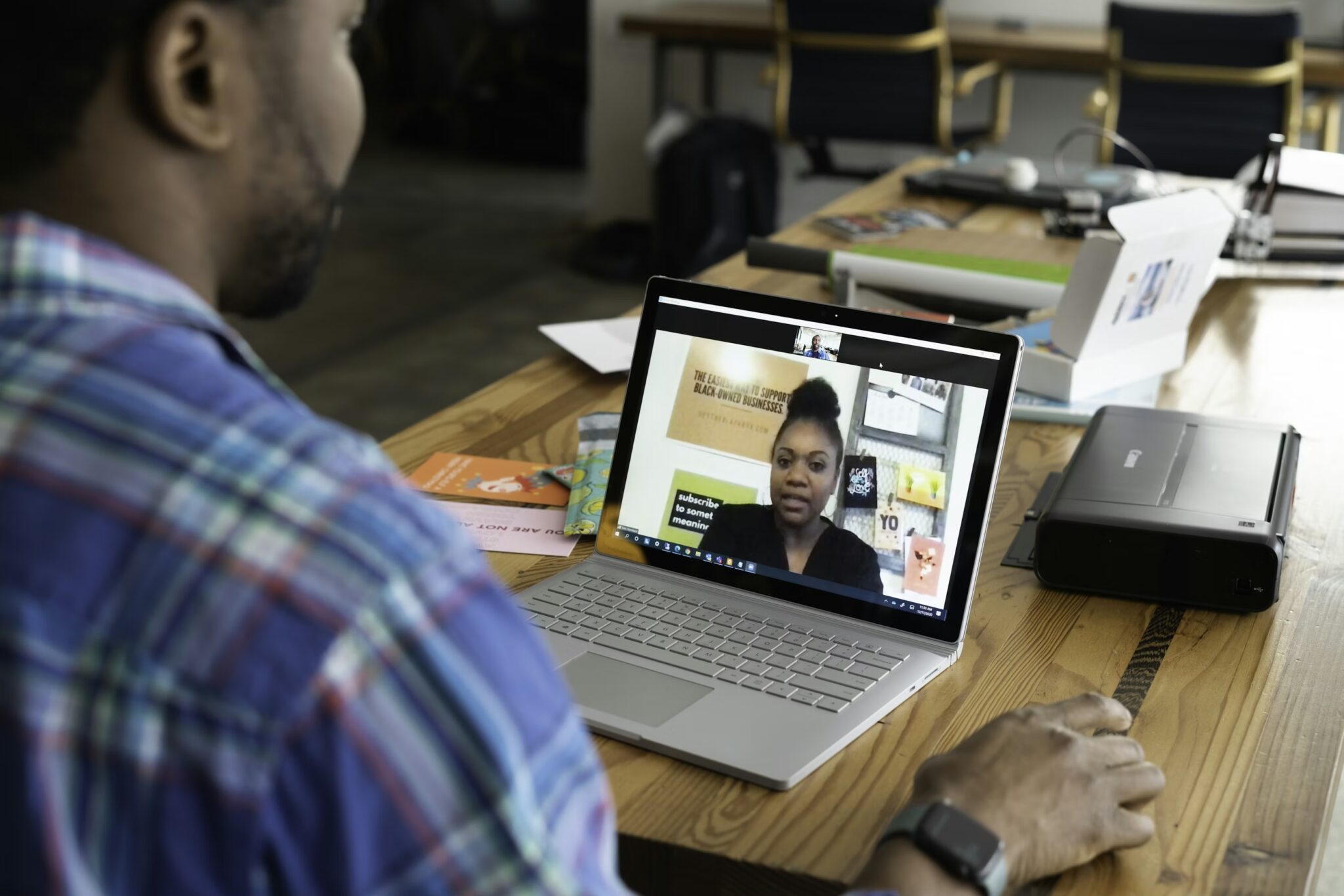When you’re hiring employees for a remote workplace, there are questions you can ask for insight into their remote work habits, experience, attitudes and abilities. Jump straight to the questions that will help you determine a candidate’s suitability for your organization’s remote work culture. Alternatively, keep reading to learn more about what a remote candidate expects from their prospective employers in 2022.
The verdict has long been out: most of us prefer remote or hybrid work. When given the opportunity, 61% of people who can work from home will opt to do so. Some employees feel so strongly about remote work, they’ve quit or threatened to quit following ‘return to office’ orders. In an anonymous poll, 56% of Apple employees said they were considering resigning due to dissatisfaction with the company’s inflexible back-to-office demands. According to Forbes, 80% of US workers would turn down a job if it didn’t allow for flexible or remote work.
Is anyone surprised?
Working remotely is making us happier. We’re cutting expenses by skipping commuting, expensive lunches, and formal office attire. We’re sleeping better. We have more control over when and how we work. We have more time for family, chores, errands, hobbies. All this, and our baseline activity is still improved. Research suggests as much as a 3% to 5% increase in productivity among employees who work from home.
What’s more, the impact of remote work may boost the economy by broadening the overall labor supply. More groups of people – such as those nearing retirement, people with disabilities, or parents of young children – are willing to work under flexible or remote conditions.
So what does this mean for recruiters?
To attract top talent, workplaces are going to have to offer remote contracts. If you’re going to hire remote employees, however, you’ll want to make sure they’re enthusiastic about working from home and well-equipped to handle its unique challenges.
Remote work requires trust, flexibility and transparency between employees and employer. You’ll want to know your potential recruits are at ease with the idea of onboarding from afar. You’ll be looking for signs of excellent communication and a self-starting attitude.

What ‘Soft Skills’ Should You Be Looking For in Remote Employees?
Soft skills, though often overlooked, are at the core of operating a highly efficient and productive remote team. You’re always going to be assessing candidates for their hard skills, but it’s equally important to remember that successful remote work necessitates certain attitudes and abilities, such as strong written communication skills, IT skills, time management skills, a self-initiating nature and the discipline needed to enter ‘deep work’.
If you’re employing people across time zones, candidates who have experience in asynchronous work are going to be an asset. Strong documentation skills and async communication come into play when a team is spread across the world. Determine which soft skills are most valuable to your organization’s remote workplace, then formulate interview questions around them.
Remote Work Culture Matters
It would be a mistake to assume that remote teams can’t form a powerful and distinct culture from across the screen. Each company that has transitioned to a remote and hybrid workplace has done so in its own unique way. In this ongoing transition, teams are developing their own rules, protocols, etiquette and habits surrounding remote work. Candidates should be a good match for your remote culture, and one of the best ways to determine this is by using an online recruitment tool like tl;dv to screen candidates.
When you record an interview with tl;dv, you can easily select the most important snippets from the interview and share these across your organization. You can timestamp and tag stakeholders at the exact moments in an interview where their input becomes relevant. This allows key stakeholders and potential team mates the ability to quickly weigh in on candidates.

10 Interview Questions for Remote Workers in 2022
1. What has been your experience with remote work?
Most knowledge workers will have some experience of working from home by now, but what should interest you is how they’ve felt about doing so. Simply having worked from home out of necessity during the pandemic doesn’t automatically make someone qualified to work remotely long-term, nor does it necessarily mean they’re a great in a remote-first company. By hearing candidates speak more specifically about the scope of their WFH experience, you’ll gain insight into their attitudes and abilities. There’s a difference between a candidate who will tolerate remote work because it’s the norm at their company, and a candidate who passionately insists they thrive under remote work conditions.
2. Have you faced any challenges working remotely? How did you deal with them?
We all face challenges at work from time to time. In a remote workplace, we’ll need to rely heavily on our own ability to solve problems. The last thing you want is an employee whose first instinct, when an issue pops up, is to immediately message all of their colleagues for help.
At the same time, you must trust that employees know when it’s appropriate to reach out for help and input. Struggling employees are more likely to be noticed and helped in a physical office. However in the remote workplace, a struggling employee is responsible for reaching out for help when they need it. In short, a remote candidate’s ability to single-handedly tackle and communicate challenges should be assessed.
This interview question can also shed light on challenges the candidate has encountered in adapting to remote work. Let’s face it – even those of us who love working remotely may have found certain aspects tiring at times!
Whether it’s an issue of interrupting children, occasional bouts of loneliness, or the struggle to ‘switch off’ from work – candidates who are open about their challenges in working from home show a degree of introspection which will prove advantageous in remote work; it means they know the circumstances under which they struggle, which is the first step toward overcoming such struggles.
3. Where is your favorite place to work?
Not everyone has the luxury of a well-equipped home office, and that’s OK. Some people will work efficiently from their kitchen tables or even nestled into their sofas. Others will list a diverse range of workspaces; cafes, trains, libraries, parks. Some experienced digital nomads can work just as effectively from the beach as others work from their home offices.
Nonetheless; precise workplace conditions may matter to your organization. The location from which an employee typically works can have implications as to their ability to attend meetings or perform work which necessitates more advanced equipment (like two screens). Does your company require remote employees to have a reliable, single workplace?
Most successful remote businesses are adopting an asynchronous style of communication which removes the need for live attendance of meetings, which in turn gives employees more freedom as to the places from which they work. Consider which demands, if any, you’d place on a remote employee’s typical workplace.
4. What does a typical working day look like for you?
We’re waving a long overdue goodbye to the 9 to 5. Flexibility is the name of the game, which means candidates with discipline and strong time management skills excel at remote work. Results are way more important than employees putting in an arbitrary number of hours. If deadlines are met, what does it matter if an employee starts their workday at 8am or 10am?
So for candidates who are expected to set their own hours, ask them; how do you manage your time? Some employees prefer to handle a certain kind of task on a certain day of the week, while others divide their tasks between morning and afternoon. Others rely on tools like Trello and Jira to prioritize tasks. Ideally, a candidate’s time management style will align with their prospective team’s way of working.
5. How do you manage distractions while working from home?
There’s less chit chat by the water cooler, sure, but remote work is still full of distractions. An effective remote employee will know how to minimize them. Consider whether candidates refer to technology like app silencers, or focus techniques like Pomodoro.
By asking this question you can also learn what candidates expect from their employer in terms of help in reducing distractions. They may ask questions like: Do you encourage employees to switch off non-essential notifications? Is your remote work culture conducive to deep work? Do you reimburse child care expenses?
6. How do you maintain effective communication with your teammates?
We’re used to relying on body language, tone of voice and ether emotional cues to understand what a colleague really means when they say something. When communication is primarily in written form, effective communication is more important than ever. You’ll want to make sure that prospective employees make themselves clearly understood in their written communication. Ask them, also, how they go about seeking clarification in the communications of others.
7. Which remote collaboration tools are you familiar with? Which are your favorite and why?
There is a whole world of communication and collaborative tools out there. Solutions like Trello, Slack, Miro, tl;dv, and Jira may be house-hold names, but not every organization uses them. It would be unreasonable to expect every candidate to be familiar with every tool, but it’s worth taking note of which ones the candidate is experienced in – and which ones they’ll require training in.
8. Is there anything you miss about working in an office?
Understanding what a candidate values in face-to-face collaboration is important because it helps you understand their potential needs in a remote setting. If what they miss is coffee chats, then this may be remedied in your organization with virtual coffee chats each Friday. If they miss the feeling of being in a different setting, maybe they’d benefit from a coworker membership. If it’s the state-of-the-art equipment and ergonomic furniture they miss, perhaps this is something your organization could provide them.
Maybe they miss team building or after work activities, in which case they’ll want to know what your company offers in terms of physical meet-ups from time to time.
9. What, according to your experience, is responsible for successful remote team work?
This question is essential; how does the candidate approach working with people they have never physically met? Consider how the candidate draws from their own experience, both successes and failures, in forging meaningful relationships with remote colleagues.
10. What remote conditions need to be in place for you to work effectively?
Gain insight into how a candidate takes responsibility for their effectiveness in a remote workplace. Their ideal conditions may include the ability to start work later in the day. Possibly they feel strongly about utilizing a particular kind of collaboration tool, or about the ability to switch off non-essential notifications. However this question is also valuable because it can initiate a discussion on what the candidate expects from their employer. They may want to know how your organization will support them in onboarding, excelling and progressing. So – what do you offer?
Questioning a candidate on their experience and perspectives on remote work will help you and stakeholders determine whether they’re a good fit for your company’s remote culture. We recommend recording, timestamping and clipping interviews (with a tool like tl;dv) to easily share interview snippets across your organization. This allows you to collect input, reduce bias, and form a rich impression of a candidate’s compatibility in the least time-demanding way possible.





